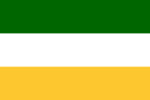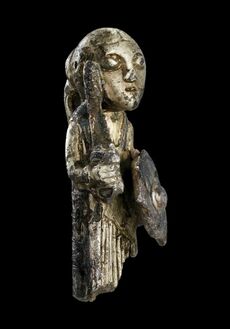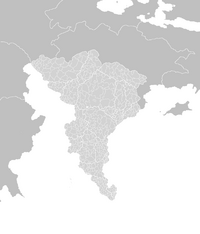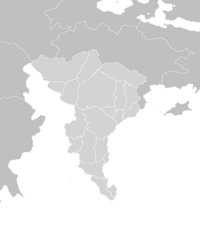Kentalis: Difference between revisions
(→Temprature records: Added infobox, stuff to be added later) |
mNo edit summary |
||
| Line 1: | Line 1: | ||
{{Region icon Anteria}}{{NSNIcon|Kentalis}} | {{Region icon Anteria}}{{NSNIcon|Kentalis}}{{Country icon Kentalis}} | ||
{{Infobox country | {{Infobox country | ||
|conventional_long_name = The Republic of Kentalis | |conventional_long_name = The Republic of Kentalis | ||
Revision as of 13:47, 24 June 2022
The Republic of Kentalis Republika Kentalis Република Кенталис Other:
| |||||||||||||
|---|---|---|---|---|---|---|---|---|---|---|---|---|---|
| Motto: "Служићу најдражем Кенталису" Kental: "I will serve my dearest Kentalis" | |||||||||||||
| Anthem: The song of Požanovac Kental: Песма Пожановац | |||||||||||||
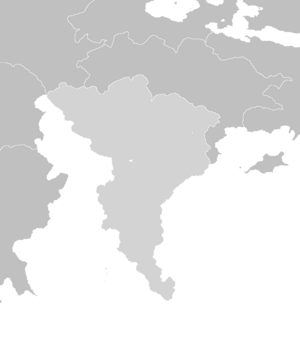 | |||||||||||||
| Capital and largest city | Polácica | ||||||||||||
| Working languages | Kental Ereskaneese Bisveni | ||||||||||||
| Recognized Regional Languages | |||||||||||||
| Ethnic groups | Kentalians Arakovacs Ereskans Bralea Bisveni Torvoneese Qazhshavans | ||||||||||||
| Demonym(s) | Kentalian Кенталиaц (Kental) | ||||||||||||
| Government | Parliamentary Representative Republic | ||||||||||||
• Minister President | Viliem Ferjancić (LSK) | ||||||||||||
• Deputy Prime-Ministers | Miloje Durashević(LSK) Suzana Marković(D-HS) Đoko Sandić(SND) | ||||||||||||
• Vice President of the Council of State | Vojislav Nastasić(HLP) | ||||||||||||
| Legislature | Estates-General | ||||||||||||
| Higher Senate | |||||||||||||
| Lower Senate | |||||||||||||
| Establishment | |||||||||||||
• Požanovac proclaimed | 794 | ||||||||||||
• Požanovacian split | 1561 | ||||||||||||
• Republic of Požanovac | 1799 | ||||||||||||
• Second Požanovacian Split | 1883 | ||||||||||||
• Republic of Kentalis | 19 December 1912 | ||||||||||||
| Area | |||||||||||||
• Total | 696,576 km2 (268,949 sq mi) | ||||||||||||
| Population | |||||||||||||
• 2021 estimate | 65,100,000 | ||||||||||||
• 2013 census | 64,843,589 | ||||||||||||
• Density | 93/km2 (240.9/sq mi) | ||||||||||||
| GDP (PPP) | 2021 estimate | ||||||||||||
• Total | 2,399 Trillion ACU | ||||||||||||
• Per capita | 37,426 ACU | ||||||||||||
| GDP (nominal) | 2021 estimate | ||||||||||||
• Total | 2,240 ACU | ||||||||||||
• Per capita | 34,408 ACU | ||||||||||||
| Gini (2021) | medium | ||||||||||||
| HDI (2021) | very high | ||||||||||||
| Currency | Sekinar (SEK) | ||||||||||||
| Time zone | UTC-6 | ||||||||||||
| Date format | dd-mm-yyyy | ||||||||||||
| Driving side | right | ||||||||||||
| Calling code | +31 | ||||||||||||
| ISO 3166 code | KNT | ||||||||||||
| Internet TLD | .KT | ||||||||||||
Kentalis, officially the Republic of Kentalis is a nation located on the Požanovac Peninsula, located in the south of Thuadia. Bordering Shimerlain, Solisle and Moldanovica. The country has 21 Provinces, Including the Polácica special district, and a population of 64 Million. Language in Kentalis is divided between multiple slavic and Mohavic languages, those being Kental, Ereskaneese, Bisveni, Bralea and Arakovan, through Qazhshavan is also recognised as a minority language
The four largest cities in Kentalis are Polácica, Apačin, Živislavgrad and Koderevo. Polácica is the Capital of Kentalis and its largest city. Polácica is also the Political capital of Kentalis, with the Lower Senate and Higher Senate being found there. The port of Apačin is the largest port in all of Thuadia, and the second largest of Anteria.
Kentalis has been a Parliamentary Representative Republic with an unitary structure since 1912, when the Republic of Požanovac was formed. After the Civil war, Kentalis gained its current borders with the integration of Arakovac. The country has long had a tradition of religious acceptation, with Gabrielism and Jovanism being its two largest religions. Kentalis abolished the death penalty in Civil Law in 1923, though it was not completely removed until a new civil-rights chapter in the constitution was approved in 1942. After the Civil war, it was temporarily reintroduced in military form. Kentalis, starting in the late 20th century, has been starting a record of social tolerance, having legalised abortion in 1993 and same-sex marriage in 1998, becoming one of Anteria's first nations to do so. Women's suffrage has been allowed since 1934. Its mixed-market advanced economy ranks above-average per capita income globally. Kentalis ranks high in international indexes of economic freedom, human development, quality of life and press freedom.
Kentalis is a large player in international relations, being a member of the Inner Sekidean Union. Kentalis' allies are SU countries, Vultesia, Qazhshava and Bakyern.
Etymology
The name Kentalis comes from the Kental words for land, Kopno and Chronicle, Anali. Kentalis can be translated as "The Land of Chronicles".
Kentalis has a standard naming convention, with most other languages having a fairly standardised variation of the name. In the Standard tongue, Kentalis is also called Požanovac (although this is only the peninsula Kentalis is situated on), whereas the term "Kentalian" is used as the demonym and adjectival form.
In Kental
In Kental, the official names for Kentalis, the Kental language and a Kentalian citizen are Кенталис, Кентал, Кенталин (Kentalis, Kental, Kentalin in latinised form). However, colloquially the country is even by the Kentalians often referred to as Požanovac, although rarely outside the Požanac Province, where it may even be used as a pejorative term.
There is no plural form for the nation.
History
(WIP)
Prehistory
The oldest human (Neanderthal) traces which were found on the Požanovac peninsula were found next to Živislavgrad, from what is believed to be about 200,000 years ago. However, the oldest confirmed traces of human activity are found in the North-eastern parts of Kentalis, which traces back to 15,000 years. These settlers were part of the now extinct Botenik Hunter-Gatherer culture, which were already closely related to multiple slavic groups. Only in 2500 BC, the first farmers arrived from what is believed to be modern-day Zhousheng. Around 1000 BC, it is believed that the groups of Proto-Kental slavs spread further out to form more individual groups. The largest of these moved further south, while other groups stayed near Živislavgrad. During this time, it is also believed that the first Arakovac groups arrived from Qazhshava. As time passed, these groups spread out into multiple cultural groups, with the Požanovans eventually becoming the largest, and the Ereskans in second. The first proof of a nation was found in modern-day Bisvenia, where a Bisveni kingdom lasted from around 200 BC to 20 CE. In 60 CE, Christianity began taking place in Požanovac, and eventually became the dominating religion.
The arrival of the Kingdom of Saint Jovan in 514 CE, also known as the first Ereskan Kingdom, upset the subtle ballance on Požanovac, and indirectly led to the creation of the Kingdom of Požanovac. Saint Jovan spread out across the North-Eastern part of Požanovac, and spread the Jovanist faith of Ereska with them. The Požanovan city-states could barely oppose them, and for 100 years the Ereskans controlled the Eastern part of Požanovac. In 571, however, the largest of the city-states in Požanac, Smevo, began an era of diplomatic conquest, quickly expanding and forming the kingdom of Požanac, in what today is the Požanac province.
Kingdom of Požanovac
Collapse
Požanovacian split
Re-Unification
Second Split
Modern Time
Geography
Geology
Climate
| Climate data for Surin | |||||||||||||
|---|---|---|---|---|---|---|---|---|---|---|---|---|---|
| Month | Jan | Feb | Mar | Apr | May | Jun | Jul | Aug | Sep | Oct | Nov | Dec | Year |
| Record high °C (°F) | 0 (32) |
0 (32) |
0 (32) |
0 (32) |
0 (32) |
0 (32) |
0 (32) |
0 (32) |
0 (32) |
0 (32) |
0 (32) |
0 (32) |
0 (32) |
| Average high °C (°F) | 0 (32) |
0 (32) |
0 (32) |
0 (32) |
0 (32) |
0 (32) |
0 (32) |
0 (32) |
0 (32) |
0 (32) |
0 (32) |
0 (32) |
0 (32) |
| Daily mean °C (°F) | 0 (32) |
0 (32) |
0 (32) |
0 (32) |
0 (32) |
0 (32) |
0 (32) |
0 (32) |
0 (32) |
0 (32) |
0 (32) |
0 (32) |
0 (32) |
| Average low °C (°F) | 0 (32) |
0 (32) |
0 (32) |
0 (32) |
0 (32) |
0 (32) |
0 (32) |
0 (32) |
0 (32) |
0 (32) |
0 (32) |
0 (32) |
0 (32) |
| Record low °C (°F) | 0 (32) |
0 (32) |
0 (32) |
0 (32) |
0 (32) |
0 (32) |
0 (32) |
0 (32) |
0 (32) |
0 (32) |
0 (32) |
0 (32) |
0 (32) |
| Average precipitation mm (inches) | 0 (0) |
0 (0) |
0 (0) |
0 (0) |
0 (0) |
0 (0) |
0 (0) |
0 (0) |
0 (0) |
0 (0) |
0 (0) |
0.0 (0.0) |
0.0 (0.0) |
| Average precipitation days (≥ 0.0 mm) | 0 | 0 | 0 | 0 | 0 | 0 | 0 | 0 | 0 | 0 | 0 | 0 | 0 |
| Mean monthly sunshine hours | 0 | 0 | 0 | 0 | 0 | 0 | 0 | 0 | 0 | 0 | 0 | 0 | 0 |
| Source: National Meteorological Institute of Kentalis (NMIK) | |||||||||||||
Nature
Rivers
Torug
Polac
Veja
Mountains
Protea Mountain Range
Mt. Lutec
Big and small Vojas
Politics
Political Culture
Political Parties
Due to the multi-party system in place in Kentalis, no single party has held a majority in parliament since the early 20th century, and as a result, coalition cabinets had to be formed, with no single party reaching a majority since the 1915 election. The Kentalian political system was dominated by five families of political parties, after the Civil war, this was reduced to four with the removal of the Nationalist party. These political families are the Christian Democrats, currently represented through the Christian-Democratic Party (D-HS), the Liberalists, represented through the Party for the People and Democracy (SND), the Social Liberalists, represented through the Liberal Party of Kentalis (LSK) and the Social Democrats, represented through the Democratic Party for Socialism (DPS).
The current cabinet, the first Ferjancić cabinet formed in 2019, has a record of 5 parties in the coalition, those being the Liberal Party of Kentalis, Christian-Democratic Party, Party for People and Democracy, Christian Liberal Party and the Kentalian People's Party.
Parties represented in the Estates General
Government
Administrative Regions
Kentalis is divided into five Historical regions, twenty-one Provinces and 712 Municipalities. Each province is governed by a Commisioner, which are elected every five years. The province is the second-highest level of government, after the national government. Provinces do not have many competencies, and mostly deal with issues too large for municipal governments, but too small for the National government. Such issues include;
- Land management, specifically regional zoning laws;
- Transport, regional infrastructure and regional public transport;
- Economy and agriculture;
- Environment and conservation;
- Recreation, welfare and culture;
Historical Regions are to give regional minorities (Such as the Bisveni, Ereskanese, and Arakovan minorities) certain rights, such as the right to their own language in education, and increased autonomy. Historical regions follow Provincial borders, and do only De jure exist as organs of the government.
| ||||||||||||||||||||||||||||||||||||||||||
| ||||||||||||||||||||||||||||||||||||||||||||||||||||||||||||||||||||||||||||||||||||||||||||||||||||||||||||||||||||||||||||||||||||||||||
Foreign relations
Main page: Foreign relations of Kentalis
Military
Economy
Agriculture
International Trade
Transport
Road Transport
Public Transport
Cycling
Water Transport
Major Ports
Air Transport
Demographics
Functional urban areas
Largest municipalities in Kentalis
2020 Survey | |||||||||
|---|---|---|---|---|---|---|---|---|---|
| Rank | Province | Pop. | Rank | Province | Pop. | ||||
 Polácica  Apačin |
1 | Polácica | Polácica | 3,953,640 | 11 | Miojić | Vatadec | 401,706 |  Živislavgrad  Koderevo |
| 2 | Apačin | Apačin | 2,743,530 | 12 | Živistar | Gravi | 362,864 | ||
| 3 | Živislavgrad | Ereska | 1,732,750 | 13 | Câče | Bisvenia | 321,260 | ||
| 4 | Koderevo | Darvci | 1,032,920 | 14 | Rulenci | Adtu | 319,934 | ||
| 5 | Vinkovždin | Valma | 832,192 | 15 | Ćuptica | Vevmica | 307,286 | ||
| 6 | Srbisela | Suboje | 732,826 | 16 | Čukovac | Gravi | 303,703 | ||
| 7 | Smevo | Požanac | 632,120 | 17 | Čopaja | Pogotina | 293,770 | ||
| 8 | Požim | Darvci | 511,514 | 18 | Murjica | Previtica | 284,989 | ||
| 9 | Gukoshny | Arakovac | 454,403 | 19 | Zhelebey | Petrira | 278,617 | ||
| 10 | Žepjka | Vetederevo | 421,818 | 20 | Lešjanin | Suboje | 275,434 | ||
Language
Religion
Education
Healthcare
Culture
Art and architecture
Kentalian value system
Kentalian people and ecology
Music
Film and television
Sports
Cuisine
Kentalian cuisine is diverse and differing per region, shaped by the practices of fishing and farming, including the cultivation of the soil for growing crops and raising domesticated animals. Many staples of Kentalian cuisine consists of various kinds of bread, fruits, meats, fishes and dairy products. Food is a large factor in Kentalian social life, especially during holidays. The Kentalian diet is relatively high in carbohydrates and fat. Breakfast consists of a cold meal, usually bread with toppings or a savoury pie known as a Burek. Lunch consists of a warm soup, usually vegetable, and bread with topping. Dinner is differing per region but is usually made up of a piece of meat or fish with vegetables and potatoes.
Other Kentalian specialities are ćevapčići (grilled and seasoned caseless sausages made from minced meat), pljeskavica (grilled spiced meat patty made from a mixture of pork, beef and lamb), various kinds of cheeses, barsh (Mutton ground-meat with garlic), đuveč (meat and vegetable stew), povsupa (vegetable soup), and pork rinds. Furthermore, Kentalian cuisine also has many fried snacks. Multiple dips, such as ajvar (roasted red pepper spread) and kajmak (dairy product similar to clotted cream) are said to have originated in Kentalis.
Kentalis is also one of Anteria's larger producers of alcoholic beverages, especially producing many hard liquors. Juniper berry flavoured liquor, known in Kentalis as genever, is considered Kentalis' national drink. Besides genever, other alcoholic beverages from Kentalis include rakija, various kinds of beers, gin and white wine. There are an estimated 2,000 breweries and distilleries for various kinds of alcoholic drinks in Kentalis. Coffee and Tea are also consumed in large amounts.
